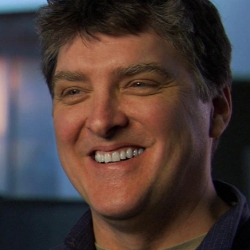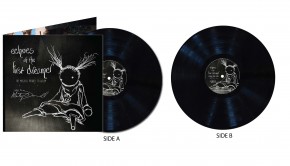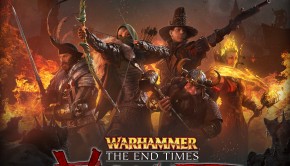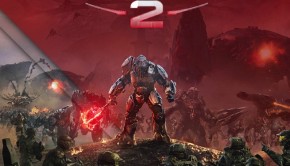Martin O’Donnell Profile
 |
Also Known As: The Elder |
| Date of Birth: May 1, 1955 (Westchester, Pennsylvania) |
|
| Residence: Bellevue, Washington |
|
| Game Works: Halo, Riven, Myth, Oni, Destiny |
|
| Official Site: Bungie |
History
| Organisation | Type | Tenure | Role |
| TotalAudio | Music Production | 1982 – | Founder, President, Composer, Sound Designer |
| Bungie | Game Developer | 1999 – | Sound Director, Composer |
Biography
Martin O’Donnell is a popular video game composer best known for his work on Bungie Studios’ Myth and Halo series alongside Michael Salvatori. Born on May 1, 1955 in Westchester, Pennsylvania, O’Donnell was inspired to be creative from a young age by his parents — his mother a piano teacher, his father a film-maker. He learned to play classical pieces on the piano as a child and later channelled influences from progressive and fusion rock with some amateur rock bands. The artist developed a broad taste in music, spanning Bach and Beethoven, to The Beatles and King Crimson, to Jerry Goldsmith and Elmer Bernstein. He went on to receive classical training at the Wheaton College Conservatory of Music, before taking a Masters of Music degree in composition at the University of South California. At college, he also formed a progressive rock band with several friends and ended up meeting Michael Salvatori, a member of a rival band who went on to become his long-term collaborator. After a job opportunity at the American Conservatory of Music fell through, O’Donnell was asked to produce an independent film score by an old friend. He decided to team up with Salvatori, who owned a recording studio, and the pair split the profits from the work together.
Around 1982, O’Donnell moved to Chicago and established the music production company TotalAudio with Michael Salvatori. The pair composed numerous jingles for television and radio commercials over a fifteen year period. Among their biggest successes were the songs for Mr. Clean and Flintstones Chewable Vitamins, the latter featuring the voice of O’Donnell’s two daughters. Other clients were as diverse as McDonalds, Kelloggs, Sears, Fitness Warehouse, Principal Financial Group, State Farm Insurance, Ohio State University, and even Nintendo USA. While O’Donnell was a video game enthusiast, it was only by chance that he ended up working on them; in 1993, he was shown a jaw-dropping demo of Myst by a friend’s son and ended up being introduced to developers Rand and Robyn Miller. After becoming friends with the close-knit team, he was invited to handle the sound design of Riven: The Sequel to Myst four years later. Alongside Salvatori, he produced a detailed collection of ambient sounds and foley effects that deeply enhanced the atmosphere of the game and helped to immerse players into the experience. He found the process far more creatively fulfilling than jingle writing and became intent on becoming an established video game composer.
After making his game debut, O’Donnell scouted himself to compose for Bungie Software, after enjoying playing Marathon at Cyan Worlds. He went on to write music and sound effects for Bungie Studios’ Myth: The Fallen Lords and Myth II: Soulblighter alongside Salvatori and former TotalAudio employee Paul Heitsch. The resultant scores added gravity to the franchise’s epic stories with their dark and mystical soundscapes, and he proudly published the soundtracks by forming an in-house record label. O’Donnell continued to juggle such projects with non-game activities, for example writing original music and narration for an edition of The New Millenium World Atlas. O’Donnell and Salvatori went on to handle all aspects of the audio for the RPG Septerra Core: Legacy of the Creator, offering a minimalistic soundtrack, immersive sound design, and powerful voice acting. However, they faced enormous difficulties while working on the project as the TotalAudio studio burned down in January 1999 right in the middle of production; he ended up being hoisted through a window to save 20 hours of recordings! The subsequent year, O’Donnell was asked to become a full-time employee at Bungie Studios, resulting in him relocating from Chicago to Seattle. While he finalised his electronica score to Oni, it was confirmed just ten days after he joined the company that it had been bought out by Microsoft.
O’Donnell was assigned to lead the soundtrack production for 2001’s Halo: Combat Evolved, a smash hit title on the Xbox. O’Donnell and Salvatori created a highly recognisable signature sound for the series by blending orchestral, electronic, and choral elements. In his own words, the score was crafted to be “big, exciting, and unusual with a classical orchestra touch to give it some weight and tenure”. For the main theme, O’Donnell captured the epic scope and ancient feel of the game with an instantly recognisable monk’s chant, before shifting into an action-packed section featuring propulsive string leads and electronic beats. In order to implement the score, O’Donnell blended cutting-edge samplers with performances from a small group of instrumentalists and singers, and mixed the final result in 5.1 surround sound. With the help of several sound designers, he also coordinated the sound editing, sound effects, and voice recording for the title, even casting Steve Downes as Master Chief after working with him previously on Septerra Core. The soundtrack was gloriously received and won O’Donnell a legion of fans, dubbed “The Marty Army” on Bungie’s forum. For the game’s album release from Sumthing Else Music Works, O’Donnell created frozen arrangements that represented an approximation of a game playthrough. The album managed to sell an impressive 40,000 copies as a stand-alone purchase. The composer also produced suites of Halo music that were incorporated into the concert performances and album releases for the world concert tours PLAY! A Video Game Symphony and Video Games Live, both of which he attended.
In subsequent years, O’Donnell expanded on the musical foundations of the Halo universe by leading several iconic scores. He pioneered numerous technical innovations on Halo 2 by recording the score with the Northwest Sinfonia, a live choir, and new electronic samples. Its soundtrack was released across two volumes — the first also featuring licensed rock music — and the game has apparently sold more soundtracks than any other. For 2007’s Halo 3, he combined emotional new themes with lavishly produced arrangements of classic themes in the series, helping to bring the trilogy round full circle narratively and musically. On both of these scores, O’Donnell opted to compose the music right at the end of the production in order to ensure few tracks were rejected due to game adjustments. He also oversaw the other aspects of the audio production, ensuring the sound effects were more detailed and realistic than ever alongside Jay Weinland and C Paul Johnson, while hiring several famous voice actors such as Nathan Fillion and Adam Baldwin for the series. Following the game’s completion, he helped to compile the music for the trilogy into a six disc box set.O’Donnell closed his time on the Halo franchise by co-composing the soundtracks for 2009’s Halo 3: ODST and 2010’s Halo: Reach. The artist approached both games from a fresh perspective, shifting away from the galactic space opera sound in favour of more personal and emotional sound. The soundtrack for Halo 3: ODST was inspired by film noir, with O’Donnell writing the piano-based “Rain” with the image of a detective in a rain-slicked city in mind. By contrast, he envisaged a more sombre, visceral score for Halo: Reach to reflect the tragic character-driven story.
Since transferring Halo’s productions, O’Donnell hasbeen focusing his attention on directing the sound for Destiny, an upcoming big-budget sci-fi shooter from Bungie and Activision. O’Donnell teases listeners to expect a more diverse score than his Halo works, with soundscapes ranging from the whimsical to the mystical to the epic. Now deep into the production, O’Donnell and Salvatori are once again saw the benefits of collaborating. Whereas O’Donnell usually takes a rational by-the-books approach to writing music, his partner prefers to just grab a guitar and hammer out a tune. Together, they feel that their process of collaborating allows them to create better music than they ever could alone. But this time they have brought a third person on-board: The Beatles’ Paul McCartney. Through this incredible collaboration, O’Donnell and Salvatori have been able to build a more thematically-driven score that will subtly incorporate different leitmotifs to depict the various races and characters. The trio are additionally releasing a prequel project for Destiny, entitled Music of the Spheres; recorded at Abbey Road Studios, the 50 minute project features eight choral and symphonic suites dedicated to each of the eight planets. O’Donnell has achieved the nickname “The Elder” within Bungie as the oldest person there and one of the longest-serving employees. Away from Bungie’s “Ivory Tower”, O’Donnell has been happily married to his wife Marcie for 30 years and has two now grown-up daughters.
References:
– Various Game & Album Credits
– VGMdb Discography
– Company Site (English, Archived)
– Interview for Myth II (English, November 1998)
– Interview with Music4Games (English, May 2008)
– Podcast with Official Xbox Magazine (English, September 2009)
– Interview with 1UP (English, September 2009)
– Interview with Gamasutra (English, March 2010)
– Interview with Game Informer (English, December 2013)
© Biography by Chris Greening (September 2008). Last updated on March 18, 2014. Do not republish without formal permission.
Posted on March 18, 2014 by Chris Greening. Last modified on March 21, 2014.














